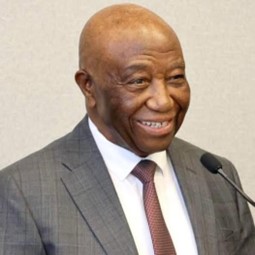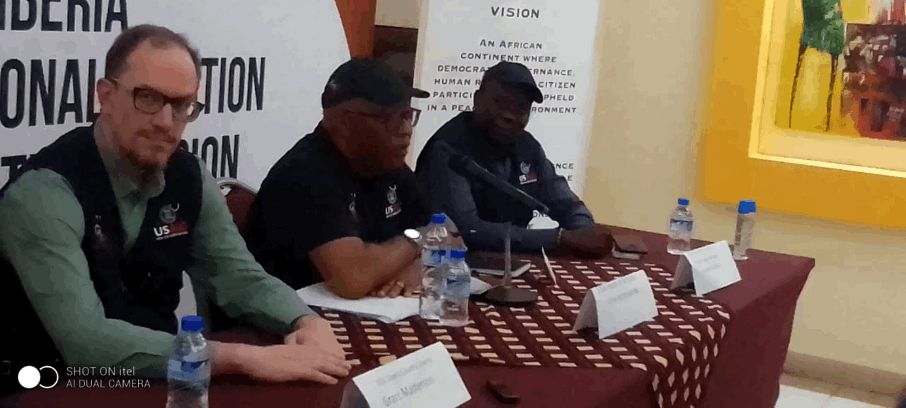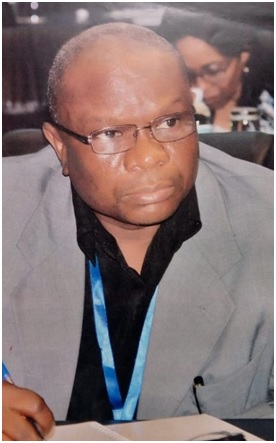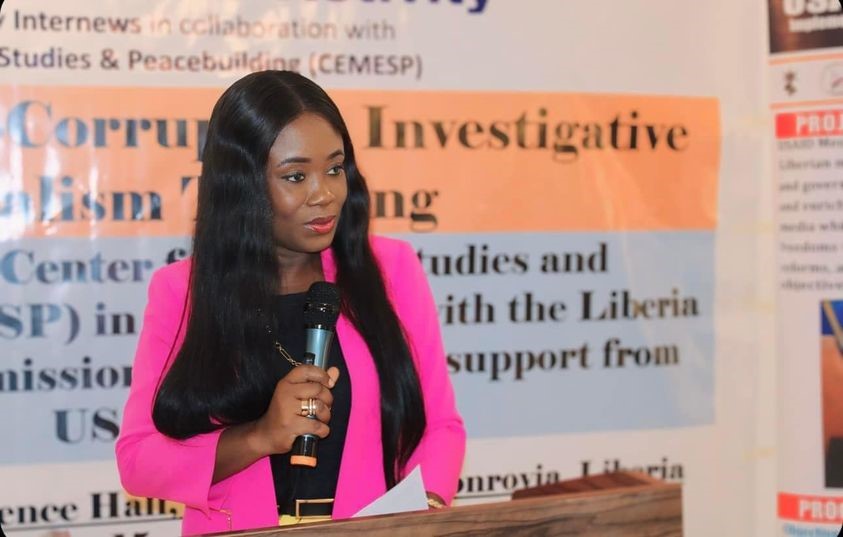The Government of Liberia (GOL), through the Liberia Water and Sewer Corporation (LWSC), has officially restored pipe-borne water supply to Monrovia and its environs.
The decade-plus civil war that ended in 2003 destroyed the country’s infrastructure, including its largest reservoir and pipelines for water distribution.
Statistics show that for more than a decade the water quality in Liberia has been a steady issue. In 2016, only 25 percent of the population had access to clean water. Currently, of the estimated 4.5 million people populating the country, more than one million are unable to access safe drinking water.
With the situation at hand, the George Weah-led administration came to power in 2018 and started discussions with partners about the need to restore water to Monrovia and its environs, says LWSC Managing Director, Duannah Kamara.
Speaking Tuesday while switching on the water supply, Managing Director Kamara said the process marked a major achievement for the George Weah administration.
He said the restoration of pipe-borne water to Monrovia marks a new beginning, that the LWSC is once more supplying safe, pipe-borne drinking water to central Monrovia after repairing water treatment and pumping facilities damaged during the Liberian civil war.
Meanwhile, Kamara indicated that the restoration of the facilities was made possible through assistance from the Government of Liberia (GOL) and its partners, such as the World Bank.
Until now, residents of Monrovia had relied on the supply of water in jerry cans, usually sold by wheelbarrow boys known as push-push, or spent many hours queuing and fighting to collect water from commercial water-trucks.
“Today water is here! All we are saying now is the President has done his part; the Legislature must understand that water has to be pumped to citizens of this country. They must prioritize water,” he said.
He said USAID and other partners were instrumental in making sure water is restored to the city.
“USAID just gave us a report: we were ranked 13th among countries with a lack of safe drinking water. They had to approve a budget for us. They signed an MOU with the African Development Bank (AfDB) to support the water treatment plant,” MD Kamara stated.
The LWSC boss is however warning Liberians against water theft, emphasizing that if all the customers pay their bills on time the entity will be able to extend the supply of water to other areas.
“We spend US$3,000 daily to pump the water, we use chlorine and other chemical…we go in the field, people don’t even pay their bills. Some are taking our water into the smaller pipes into their homes. How do you expect us to survive?” he said.
He also sent a caveat to residents of Central Monrovia not to immediately start using the water for drinking purpose, as the pipelines need to be flushed in order to clean the lines. “For those of you living in Paynesville, we are not talking about you. We are not speaking to the folks who have been using the water up to 9th Street. But after City Hall, coming down into Central Monrovia, we are saying please be careful with the water running in those pipes…do not use the water for drinking and cooking, as the chlorine content will be high because we want to get rid of all the bacteria and other dirt from the pipes.
“We are saying please be careful. Do not use the water for drinking or cooking for the next thirty days. After we shall have cleaned the lines, we will come back to inform you.”
MD Kamara emphasized that for the decade-plus years that Central Monrovia was cut off from the water supply, lots of bacteria, bullets, particles and other harmful substances entered the pipelines, and so they were sending out the warning because some people could use the scenario to tarnish the reputation of LWSC and the Weah administration.
At the same time, he assured the rest of the country that discussions are ongoing to extend water supply to other parts of the country.
Meanwhile, several Liberians who received the public water supply in their homes expressed gratitude to the government and its partners, such as the World Bank.







